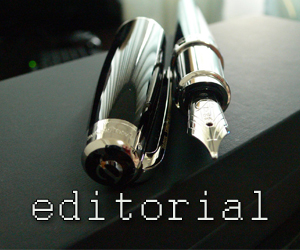
Shrugging for Putin
from Tanya Lokshina, Senior Russia Researcher - Human Rights Watch
Russia holds parliamentary elections on Sunday, but with most of the important questions already well answered, there is little in the way of pre-election suspense. Tanya Lokshina writes on crows, apathy and a growing number for whom Putin’s soft authoritarianism is already yesterday’s story.
A few days ago, I was telling a colleague we needed to postpone some work-related plans: ‘Sorry,’ I said, ‘But we won’t be able to start on this till after the Russian parliamentary elections!’ My colleague was perplexed. ‘The elections are in less than a week from now. We can certainly wait that long!’ Only then did it dawn on me that the Duma, or parliamentary, elections are around the corner--December 4. And it’s no wonder. The election spirit is so lacking in Moscow that one cannot but feel there is still a long time before voting day.
Sure, there are some posters and banners in the streets with United Russia, the Kremlin’s party, urging voters to come out and vote, and Vladimir Zhirinovsky of the Liberal Democratic Party of Russia (don’t let the name mislead you!) promising to stand up for the interests of ethnic Russians. And there are televised debates between party representatives. But there isn’t much else. No election ads in mailboxes. No heated political debates. No election-related discussions over drinks in smokey cafes and over-crowded kitchens.
Why? Because these elections lack competition or suspense.
Because President Medvedev’s revelation in September that he would head the United Russia for the December parliamentaries while Prime Minister Putin would run for president in 2012 left no questions unanswered for the Russian public. For practically everyone in the country, Putin’s return to the presidency and United Russia’s continued dominance in the Duma became a foregone conclusion.
Because throughout the past decade international monitoring organisations have increasingly criticised the fairness of Russian elections. They said the ruling party benefited from disproportionately favourable media coverage and abuse of government resources, and that political campaigns were not carried out under competitive conditions.
Add to that baggage the fact that the authorities failed to register any of the new opposition parties founded in 2010—Parnas, Other Russia, RotFront, Motherland-Common Sense. Sure, seven parties are competing in the election, but most analysts agree that only those four that are already in the Duma stand a chance of meeting the 7 per cent threshold – the second highest in Europe – to gain seats. And out of them it is, ironically, the Communists only that appear not to be Kremlin controlled.
When United Russia won a constitutional majority in the last Duma election, in 2007, it could push through a few key changes to the constitution: it lengthened the Parliament’s term from four to five years and the presidential term from four to six years. Considering that Putin has already had eight years of presidency and has not gone anywhere far from the power seat during Medvedev’s term in office, parallels with Brezhnev’s epoch inevitably come to mind.
When I talk to Western media and policy makers about the lack of pluralism in Russia they often argue that Russians want Putin because of his strong personality and populist machismo. But there are 140 million Russians and as one of them I can assure you that they have different views. There is a growing number of Russians that are unhappy with more than a decade of so-called soft authoritarianism and want a functional system of checks and balances on the powers that be.
When they think of Russia facing six or even twelve more years of Putin, they are frustrated and concerned because this means stagnation. It means that much-needed political and economic reform to create more public accountability is unlikely to happen. And that means no end to the lack of transparency, to corruption and to impunity for human rights violations.
Recent polls also suggest that many Russians do not really support Putin but are paralysed by apathy, with the realisation that they have no real say. A now popular joke goes as follows. A crow is sitting on top of a tree and a passerby asks, ‘Crow, whom are you going to vote for on the election day?’ ‘For Putin!’ says the crow. ‘But why?’ And the crow shrugs, ‘And if I vote against is that going to change anything?’
The Organisation for Security and Co-operation in Europe, the Council of Europe, and the European Union all expressed concern earlier this year when new parties weren’t registered, and the European Court of Human Rights concluded that Russian party registration requirements were unmanageable for small parties.
Russian officials have dismissed these criticisms, accusing the West of double standards. Russia’s partners shouldn’t cower at this but should instead stand firm on what is a fair and competitive election and what is not. And they need to support the civil society that is trying to create the transparency and public accountability that elections in Russia have so far failed to deliver.
Read also in greek language: Πληθαίνουν οι καταγγελίες για χειραγώγηση των εκλογών στην Ρωσία
opendemocracy.net
Τελευταίες Ειδήσεις - Latest News
05 Δεκεμβρίου 2011, 20:49
Μέρκελ και Σαρκοζί δίνουν "άφεση" στους ιδιώτες ομολογιούχους
05 Δεκεμβρίου 2011, 20:43
Νέο "ενδιαφέρον" για την ονομασία των Σκοπίων από τον Μάθιου Νίμιτς
05 Δεκεμβρίου 2011, 20:35
Η θέση της ΝΔ για την απόφαση της Χάγης
05 Δεκεμβρίου 2011, 20:25
Επτά άμαχοι σκοτώθηκαν και δεκάδες φοιτητές συνελήφθησαν στην Συρία
05 Δεκεμβρίου 2011, 19:50
Ενέκρινε την έκτη δόση προς την Ελλάδα το ΔΝΤ
05 Δεκεμβρίου 2011, 19:00
Μπάιτεν: Στεκόμαστε δίπλα σας αλληλέγγυοι
05 Δεκεμβρίου 2011, 18:15
Απογόητευση από το πόρισμα του ΟΟΣΑ για την παγκόσμια φτώχεια
05 Δεκεμβρίου 2011, 17:57
Σχηματισμός νέας κυβέρνησης στο Βέλγιο
05 Δεκεμβρίου 2011, 17:32
Λύγισε η Ιταλίδα υπουργός Φορνέρο
05 Δεκεμβρίου 2011, 17:25
Το Υπουργείο Παιδείας για την εφεδρεία στους εκπαιδευτικούς


